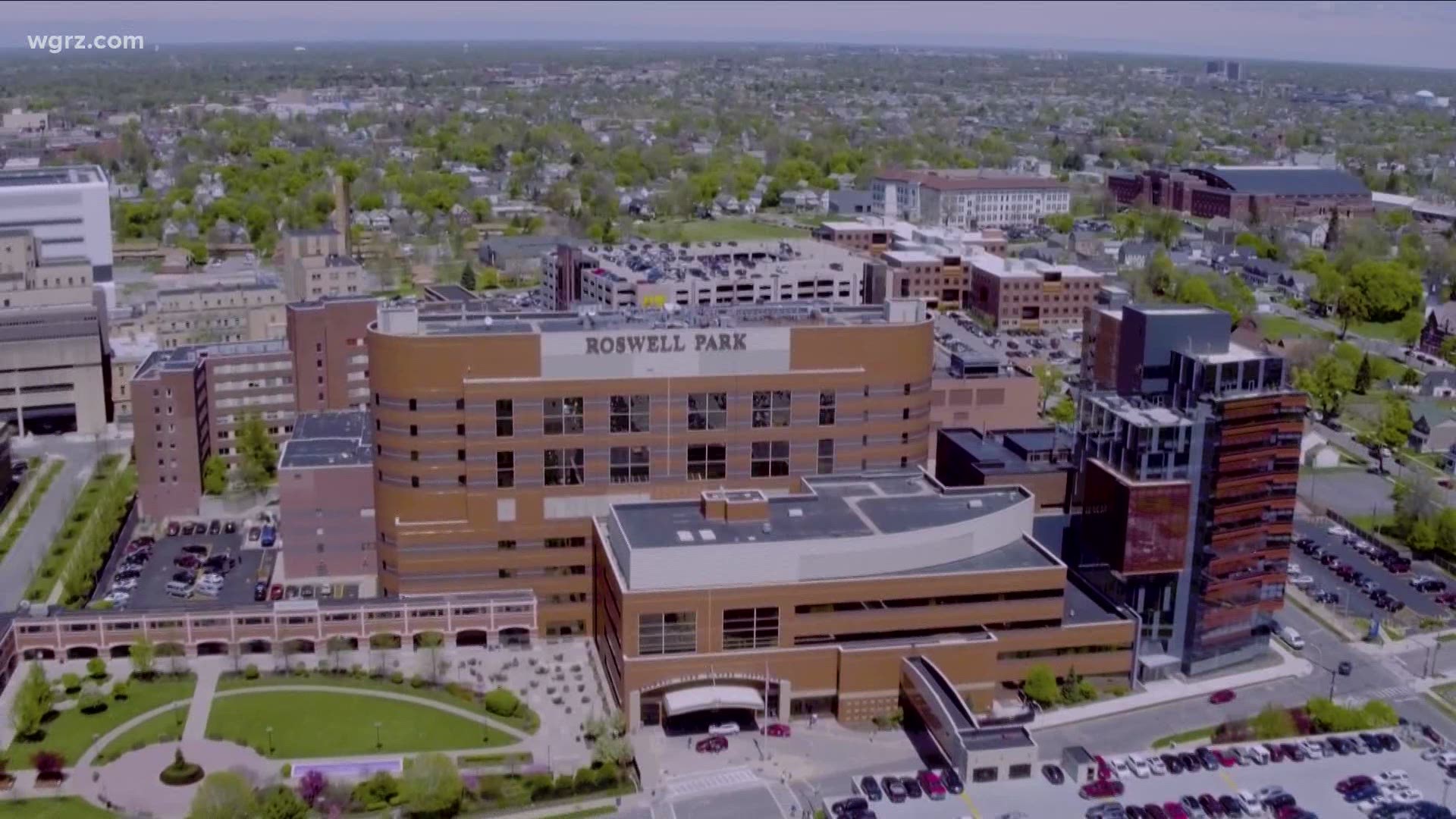BUFFALO, N.Y. — November is Lung Cancer Awareness Month.
If you live in Western New York and never considered the importance of raising awareness, consider these statistics from Roswell Park Comprehensive Care Center:
- The rate of lung cancer in Western New York is higher than the overall state average;
- Lung cancer is the leading cause of cancer-related deaths across all racial and ethnic groups in Western New York;
- Black and Latinos are dying more from lung cancer, yet are disproportionately diagnosed.
A big reason for this, experts say, has to do with barriers. Things such as language, accessibility, education, affordability, trust and familiarity.
Maria Rivera was diagnosed with stage 3 lung cancer back in 2016.
What started as a repetitive cough ultimately, after several failed attempts to cure it with over the counter medicines, landed her in an exam room where she was told something she wished never to hear from a doctor.
"Maria, you have stage 3 lung cancer."
"I knew cancer ran in my family, but I was scared," Rivera says. "But, why me? I wasn't a smoker, I don't drink, why me."
And here lies an important takeaway - you don't need to be a smoker to be at risk for lung cancer. Maria got it from second-hand smoke.
People ages 55, smokers, or those surround by constant second-hand smoke fit the necessary criteria for screening and should, according to doctors, get screened annually.
Rivera says that while it took her time to process the fight ahead of her, she listened to the team at Roswell because she trusted them, which is hard to come by.
"In our community, Hispanics, Latinos, they're scared to go to the doctors because they're scared they won't understand what's going on," Rivera says.
In her case, being bilingual, she is able to understand what is going on, but for many people language is a serious barrier when it comes to healthcare.
Then there's the issue of affordability and insurance.
"When I was living in Trenton, New Jersey I had so many issues with my Medicaid," Rivera says. "I told my husband, that if I wanted to live, we had to get out of there.
And so they did, back home to Buffalo, with only a TV and a few other things in tow.
From surgery, to chemotherapy, to radiation. "It was a lot. It was a lot," she says.
Rivera isn't alone.
In response to the need, the need for more inclusive educational programming, a team at Roswell Park came together to create, "Roswell AIR," which stands for "Awareness, Information and Resources."
Jomary Colon is one of the program coordinators, and he says this new bilingual programming serves to bridge the gap and extend reach to those who are most vulnerable: people living in Black and Brown communities.
"It all starts with education," Colon says. "We get on their level, we want people to feel comfortable with the screening process."
Early detection is key. Just ask Maria Rivera.
Ten months into remission, Maria got news that her cancer returned. This time, it was stage 4 throat cancer.
"I'm still fighting. The days I can't get up, I force myself to, I put on music and try to clean the house or something," Rivera says.
More than anything, she hopes that sharing her story inspires people to speak up and speak out.
"Just go, go to the doctor. What do you have to lose?"

